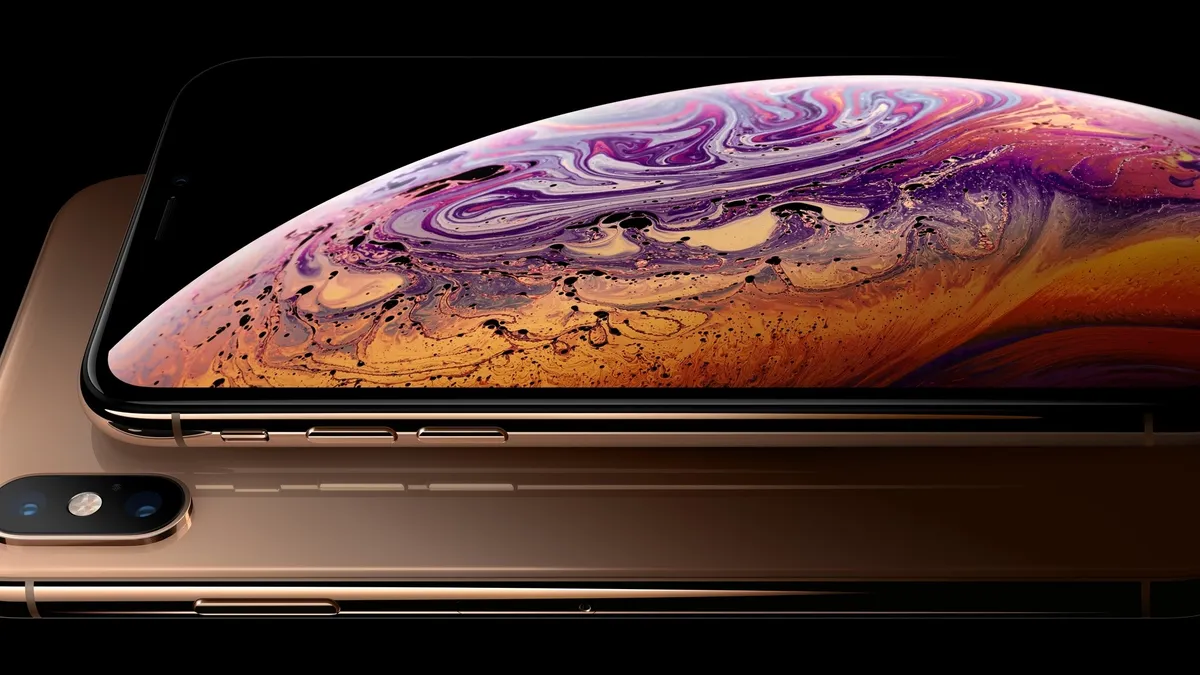Brief:
- During a public event yesterday and in press releases, Apple announced its new additions to its iPhone X line of smartphones.The iPhone XS has a 5.8" Super Retina OLED display and starts at $999. The iPhone XS Max has a 6.5" Super Retina OLED display and sells for at least $1099. The iPhone Xr has a 6.1" Liquid Retina LCD screen and retails starting at $749. The iPhone XS line comes in models with up to 512GB and will be available to preorder on Sept. 14 and will ship on Sept. 21 or Sept. 28, depending on the market. The iPhone Xr comes in smaller GB models and will be available to preorder on Oct. 19. The iPhone 7 will now retail for $449 and the iPhone 8 for $599, while the iPhone X, iPhone 6S, iPhone 6S Plus and iPhone SE have been discontinued, Business Insider reported.
- The new iPhones run on the A12 Bionic chip, which powers previously announced iOS 12 features like Face ID, immersive augmented reality (AR) and Animojis, along with advanced camera functionality. With the new chip, apps launch up to 30% faster, and the phone has faster performance while using less power. The iPhone XS gets 30 more minutes and the iPhone XS Max gets an hour and a half more battery time than the iPhone X, while the iPhone Xr holds an hour and a half more battery time than the iPhone 8. IOS 12 will be available on Sept. 17.
- The company also announced the Apple Watch Series 4, featuring health-monitoring features like fall detection and the ability to take an electrocardiogram (ECG). Available in 40mm and 44mm sizes, the Series 4 with GPS starts at $399 while the cellular model starts at $499, available to preorder on Sept. 14. Series 3 is available now for $279. In addition, Apple's HomePod smart speaker now supports searching by lyric, multiple timers, making phone calls and Spanish and Canadian French languages in select markets.
Insight:
Apple's event was full of superlatives, but didn't include any game-changing announcements from the company. Instead, the tech giant brought its entire smartphone line in concert with its iPhone X, bringing larger screens, better cameras and cutting-edge technology like Face ID and AR to more consumers.
"They have a really broad product line that will appeal to every person and price point," Adam Fingerman, founder and chief experience officer of mobile app developer ArcTouch, told Mobile Marketer.
While the iPhone XS is the same size as the iPhone X, the XS Max is the biggest-ever display on an iPhone — and bigger than competitor Samsung's Galaxy Note 9 — and even the "budget" iPhone Xr has a bigger display, but smaller overall size, than the iPhone 8 Plus. The bigger screens and higher price point could also help Apple maintain the profit margins that helped recently make it a trillion-dollar company. Perhaps more importantly, the larger screens and official rollout of improved AR features in iOS 12 could encourage consumers to spend even more time on their phones, whether in apps, watching videos or playing games, which will be key to Apple's goal of increasing the company's services revenue to $50 billion a year by 2020.
"The fact that they're bringing the more advanced technology into a broad spectrum makes it interesting for software developers," Fingerman said.
The company took a similar approach with its new Apple Watch, increasing size screen and under-the-hood performance. The new 40mm and 44mm models have 35% and 32% larger screens, respectively, along with an improved digital crown and a 50% louder speaker — features that could increase usability and adoption of the devices. Key to the new Apple Watch's performance will be consumer reaction to its new health features, including what Apple bills as the first over-the-counter ECG product offered directly to consumers.
"All the wearables have been a device looking for a killer app, and Apple is betting that health monitoring is that," Fingerman said. Already the top smartwatch on the market, Apple claims it's also the most popular watch in the world, a position that could increase as smartwatches continue to become more popular.
Apart from a few minor feature Siri updates, Apple didn't significantly update its HomePod smart speaker, contrary to some expectations. While Amazon's share of the home speaker market has shrunk, the major gains have been made by Google, not Apple, with the HomePod widely considered a bust so far. The failure to improve Siri or the HomePod in a significant way "feels a little shortsighted right now, given that consumers are taking to these conversational assistants," Fingerman said. "It feels like an area that Apple can't wait until next year's product refresh or next Worldwide Developers Conference to make a move on."














